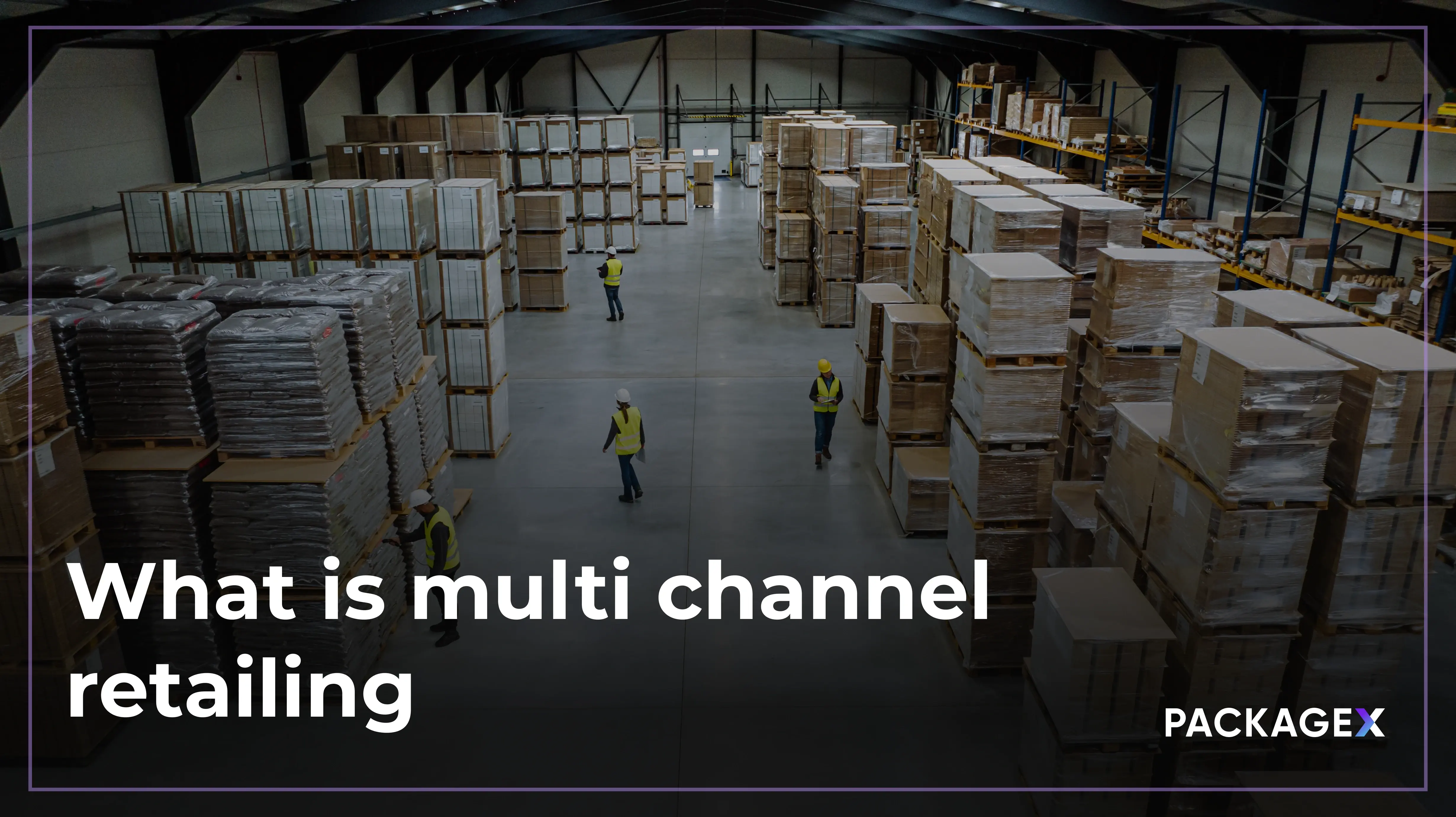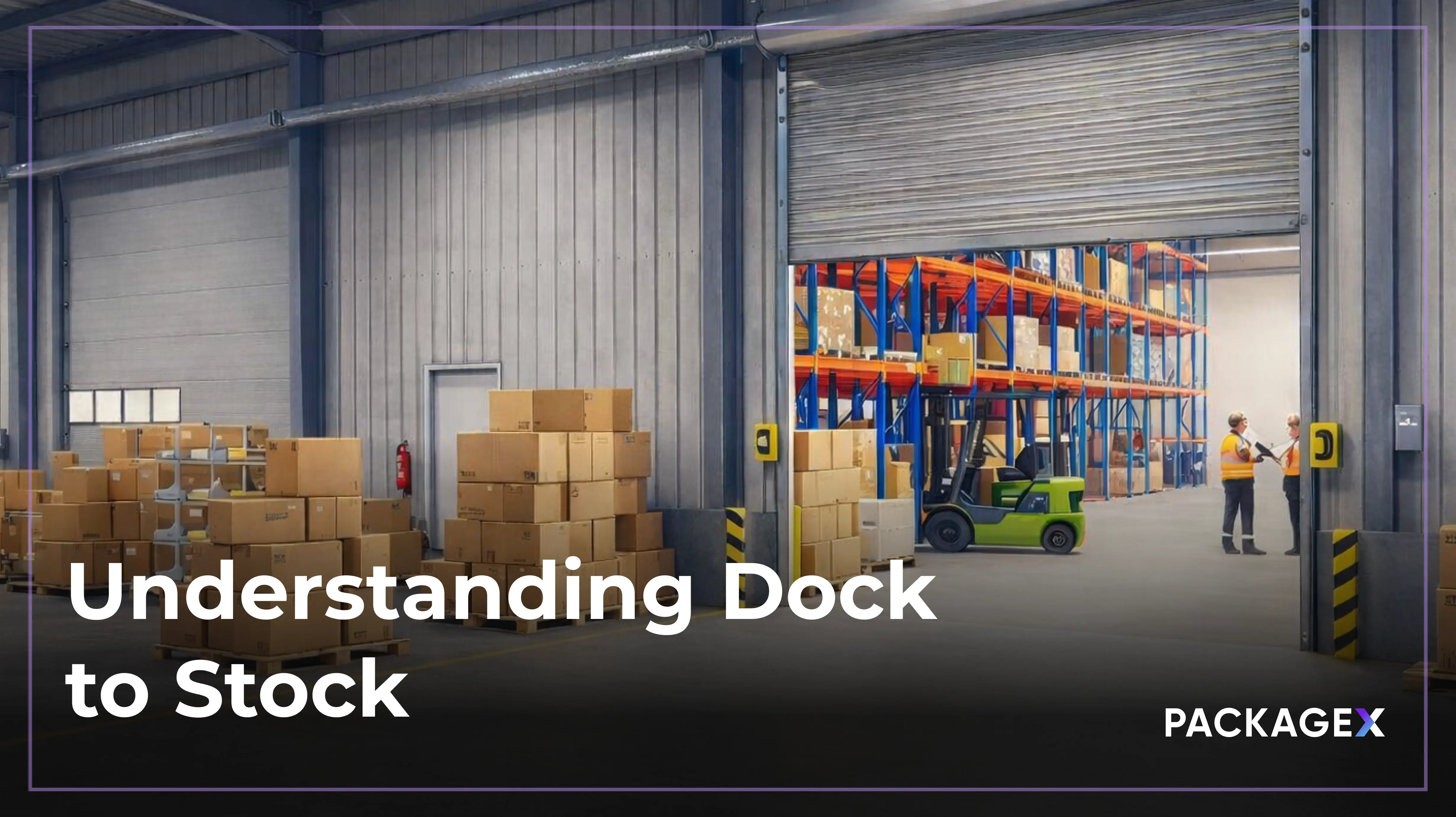The rapidly expanding eCommerce landscape means that there’s also a much greater demand for fast and efficient shipping options. Online shopping has become the norm for millions of shoppers who want their packages delivered fast. Businesses must find the most efficient and cost-effective ways to expedite shipping.
According to Statista, expedited shipping is the top reason why 80% of online shoppers prefer to buy from Amazon. This means eCommerce businesses looking to improve their bottom line and remain competitive would do well to follow suit.
This guide outlines all you need to know about expedited shipping and how you can implement it for your retail business.
What Expedited Shipping Entails
Expedited shipping is faster than standard and express shipping, which we’ll also look into.
Usually, trucks assigned to transport expedited packages travel directly from the warehouse to their designated delivery destinations without any stops. The drivers assigned to these vehicles also take the fastest routes possible to ensure that the packages are delivered with utmost urgency.
Delivery speed will vary depending on the courier, but expedited shipping generally includes the following:
Various factors may affect the specific duration of expedited shipping, such as the carrier, the eCommerce platform or retailer’s logistics network, and the source and destination of the parcel.
Retailers usually count shipping time from the moment the order is shipped out, not at the time of order placement. As such, shipping times don’t include the order processing period, especially if a customer places it on weekends or holidays.
What Types of Goods Are Usually Expedited?
Expedited shipping is often used for the following products:
Perishable Goods
Food, frozen items, and other perishables that need to be delivered unspoiled are shipped in temperature-controlled vehicles. Sellers that offer perishable items usually offer expedited shipping options to prevent damage and expiry of these goods.
Fragile Goods
Items prone to breakage or damage are labeled fragile and best delivered via expedited shipping. This significantly reduces the chances of the items getting damaged in the mail alongside hundreds of other packages.
Standard delivery vehicles also transport items in a start-stop manner, so constant jerking motions may cause fragile items to break while in transit.
Luxury Items or Expensive Products
Extremely valuable items or expensive goods are typically delivered via expedited shipping to reduce the risk of theft, product damage, or package misplacement.
Time-Sensitive Goods
Items that need to be delivered immediately for various reasons may include groceries, medicines, medical supplies, equipment, etc. These will usually be expedited especially if they are needed to fill a shortage at a certain facility or are urgently needed by patients and other consumers.
What’s the Difference Between Expedited Shipping and Other Options?
Let’s take a look at how expedited shipping stacks up compared to other shipping options:
Expedited Shipping vs. Standard Shipping
Standard shipping services are the default option as they are the most affordable for retailers and consumers. In the United States, standard shipping usually means that packages will be delivered within three to seven business days. However, specific durations vary depending on the shipping carrier and fulfillment provider.
Generally, standard shipping is slower as packages are processed and delivered at a normal schedule. They are not marked as urgent or prioritized in any way. Couriers conduct standard shipping in large batches to fulfill more orders per trip and maximize their shipping channels.
In some cases, shipping carriers may set their standard shipping period to two days at the fastest—a timeline that’s close to the maximum for expedited processes. However, expedited shipping is the best bet for shoppers who need their orders at the earliest possible time to get their items delivered next day or within two days at most.
Expedited Shipping Services vs. Express Shipping
Express shipping is faster than standard shipping—orders are shipped with special provisions so that they arrive at the recipient’s doorstep relatively quickly. These methods include shipping through air, sea, or a mix of multiple channels to meet the express timeline.
Express shipping often guarantees that packages will arrive within one to three business days. While sometimes the terms “express shipping” and “expedited shipping” may be used interchangeably, expedited shipping is technically quicker and delivered with utmost urgency.
Key Benefits of Expedited Shipping
Aside from speed, expedited shipping offers many advantages for retail leaders. Here are a few of the most important benefits of providing expedited delivery options for your e-commerce store:
Prevent Cart Abandonment
Statistics show that almost 70% of online shoppers abandon their carts for a variety of reasons, and one of them is unsatisfactory delivery offerings. In fact, 22% of e-commerce shoppers reportedly didn’t go through with their purchases upon seeing the delivery options at check-out.
Offering affordable, expedited shipping options and being transparent about delivery times can help reduce cart abandonment and boost conversion rates.
Protect Items During Shipping
The National Retail Federation (NRF) reported a loss of approximately $816 billion in sales in 2022 due to customer returns. One of the top reasons for returning products was product damage incurred during shipping. Because the demand for online shopping continues to increase, items are shipped in bulk and risk being damaged in the process.
While no one intends for this to happen, many factors (e.g., product handling and overcrowded shipment hubs or vehicles) can lead to damaged items in transit.
Expedited shipping’s non-stop delivery routes significantly reduce the risk of damaging fragile and expensive items.
Increase Customer Satisfaction
Research has shown that 60% of online shoppers make purchasing decisions based on the convenience of delivery options. Offering fast, affordable shipping like express and expedited delivery gives retailers an undeniable edge against their competition.
As cited earlier, Amazon is a classic example of this and should be emulated by e-commerce businesses looking to increase their sales.
Drive Repeat Purchase Rates Up
Repeat purchase rate (RPR) is a metric that measures the number of customers who repeatedly purchase from a certain business. In the context of e-commerce, it has been found that RPR is responsible for generating 40% of a business’s revenue. Astoundingly, these shoppers only make up a small percentage (8%) of a brand’s overall customers.
By ensuring that all shoppers get their items securely and promptly, e-commerce businesses can drive RPR way up. Satisfied customers are more likely to repurchase from their trusted stores.
Cut Storage Costs
Expedited shipping leads to increased sales, meaning items spend less time in storage. This saves e-commerce retailers thousands of dollars on holding costs. Businesses that offer expedited shipping can clear their inventory much more quickly and make better use of existing warehouse storage space.
{{returns-webinar}}
How to Offer Expedited Shipping and Protect your Margins
Expedited shipping will inevitably cost more than standard options. It can be a prohibitive expense, but there are ways to save money.
Pass it to the Shopper
The most straightforward way to offer expedited shipping without having it create a significant dent in your bottom line is to pass the burden to your customers. By making it optional rather than a default shipping option, you can charge the customer whatever the shipping carrier will quote upon checkout. This option is viable if you sell items that may weigh a lot, with large dimensions, or offer long-distance and international shipping.
Set Valid Shipping Zones
Limiting the delivery range for expedited shipping is another option. By setting certain shipping zones within a certain distance, you can minimize the cost of expediting delivery, whether you plan to shoulder the cost or have the customer pay for it.
Set Weight or Size Limits
If you don’t want to limit shipping options by geography, you can set weight limits so that only smaller items are expedited. This will limit surcharges from your shipping carrier.
Negotiate with Multiple Carriers
Shipping carriers have varying expedited shipping arrangements, so it’s best work with a dynamic platform that can help you decision between rates offered by multiple carriers. While carriers essentially deliver packages at similar speeds, other elements like dimension restrictions, package tracking, and prices may differ.
Outsource fulfillment to a 3PL
You can also partner with a third party that ships products from fulfillment centers closest to your customers. This will ensure faster delivery times and lower carrier costs, as fulfillment centers will usually have ties with carriers as well.
Conclusion
Modern consumers expect a lot from the retail businesses they order from, such as shortened delivery times. Expedited shipping offers many advantages to businesses and consumers, and they undoubtedly outweigh the extra costs that it may incur.
PackageX Ship offers plug and play apps, SDKs and APIs that enable retailers to ship to shoppers faster, easier and smarter. One request through our shipping tool instantly shows rates from a massive network of traditional and on-demand carriers, allowing you to dynamically match the best shipping rate with every shopper every time.
Even at a premium price, e-commerce businesses can save money on expedited shipping by opting for flat-rate boxes, partnering with fulfillment centers, charging carrier costs to customers, or setting weight and geographical restrictions.



.webp)
